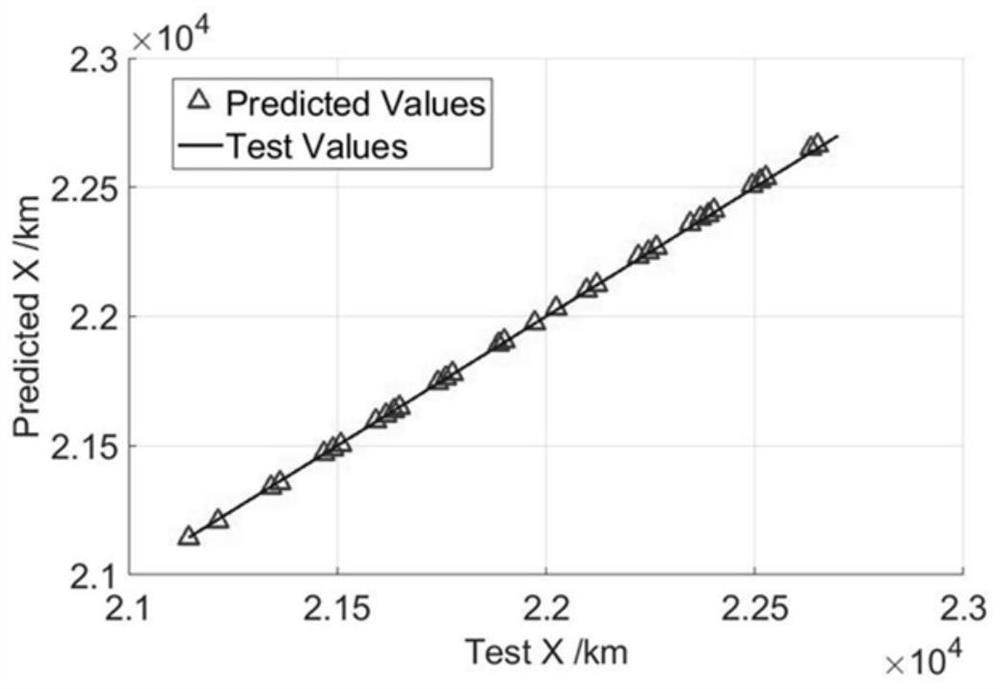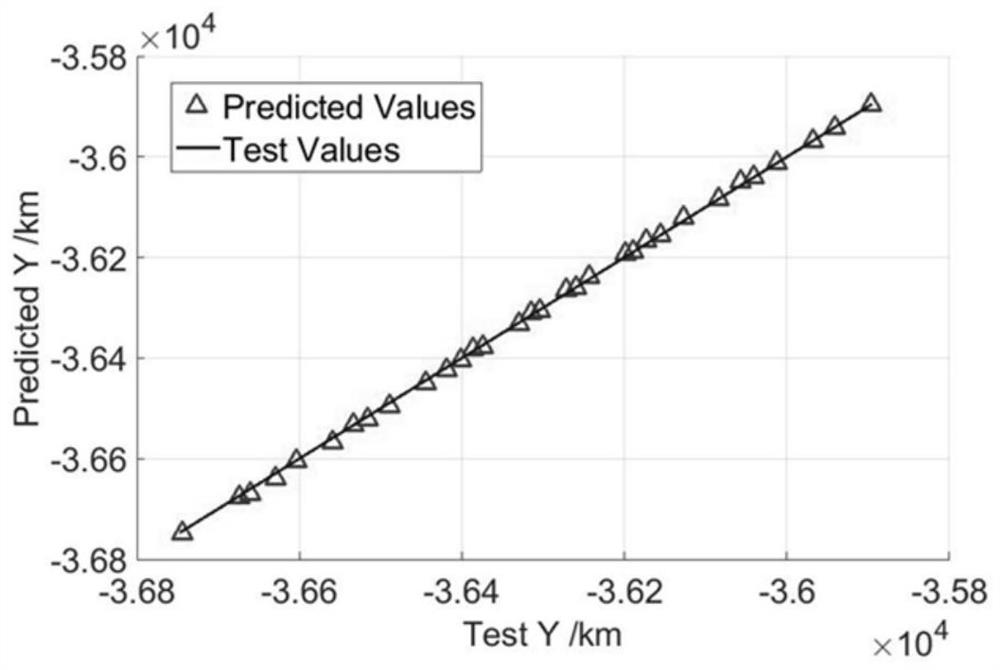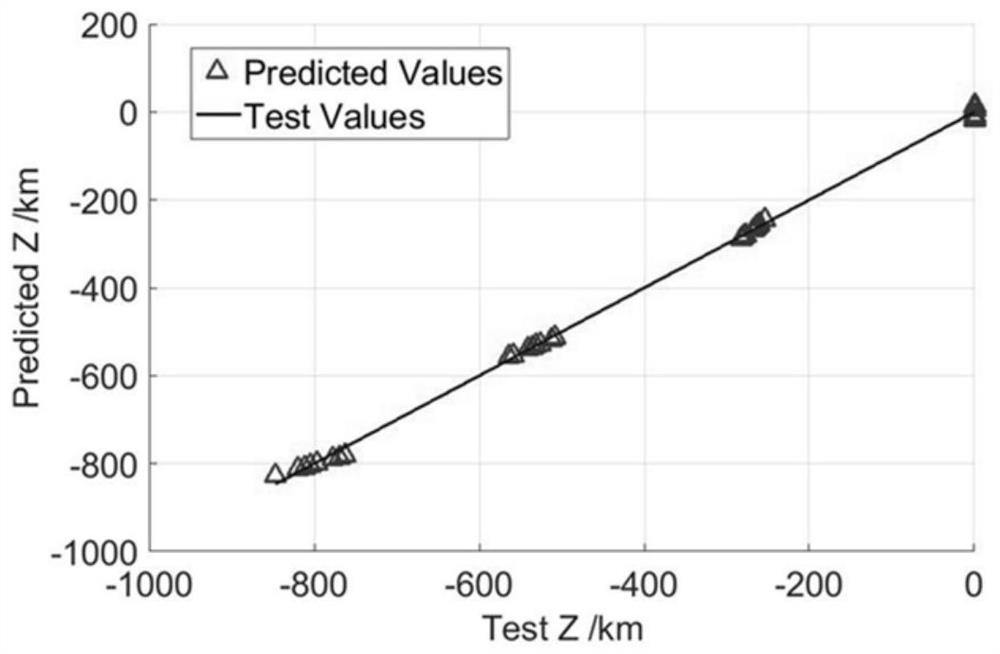A Data-Driven Method for Spacecraft Orbit Determination
A data-driven, method-determining technology, applied in complex mathematical operations, design optimization/simulation, probabilistic CAD, etc., can solve problems such as analytical model description, inability to make full use of big data, and complex high-precision dynamic models
- Summary
- Abstract
- Description
- Claims
- Application Information
AI Technical Summary
Problems solved by technology
Method used
Image
Examples
Embodiment 1
[0067] Embodiment 1 of the present invention provides a data-driven spacecraft orbit determination method, which is different from the traditional orbit determination method. It is not necessary to establish the observation equation and dynamic equation of the spacecraft from the station, but from the perspective of data-driven, First construct a weighted sample set for orbit determination, then use the distribution regression theory in machine learning, use the elastic network as the loss function, and learn the mapping relationship from the measurement data to the target orbit through the samples, so as to realize the orbit determination of the spacecraft, including:
[0068] Step 1: Orbit determination sample set Z={X, Y} composed of measurement data set X and corresponding target spacecraft orbit set Y, and weight the measurement data to construct orbit determination weighted sample set;
[0069] Step 2: Calculate the Gram matrix of the constructed orbit determination weigh...
Embodiment 2
[0104] Embodiment two: a specific embodiment:
[0105] Measurement datasets are noise-free
[0106] Taking space-based spacecraft orbit determination that only measures angles as an example, simulate the orbit determination scenario of a low-orbit observation platform for a high-orbit spacecraft, and construct a weighted orbit determination sample set through error-free simulation data Among them, a total of 800 sets of simulation data, each set of data, x i The number of samples is 50, the interval is 10 seconds, and the x i,n In , there are 5-dimensional data including right ascension, declination and the position vector of the space-based observation platform. Using the method of cross-validation, 160 groups are randomly selected from 800 groups of data as the verification set, 80 groups are used as the test set, and the remaining 560 groups are used as the training set.
[0107] In the selection of the weight coefficient matrix, different groups of weight coefficients ...
Embodiment 3
[0115] Embodiment three: another specific embodiment:
[0116] The measurement data set is noisy
[0117] In order to reflect the real orbit determination situation, in this embodiment, the variance of (2″) is added to the angle measurement data and the platform position vector respectively. 2 、(0.1km) 2 Gaussian white noise, and keep other implementation steps consistent with Example 1, the results obtained are as follows Figure 7 ~ Figure 12 shown in . The detailed comparison results for noise-free and noise-containing are shown in Table 1:
[0118] Table 1 RMSE comparison of orbit determination results without noise and with noise
[0119]
[0120]
[0121] It can be seen that the effect of adding noise on the orbit determination result is not significant, which is consistent with the results shown in the attached figure.
[0122] In order to reflect this advantage, the Laplace method is introduced as the traditional orbit determination method for comparison, an...
PUM
 Login to View More
Login to View More Abstract
Description
Claims
Application Information
 Login to View More
Login to View More - Generate Ideas
- Intellectual Property
- Life Sciences
- Materials
- Tech Scout
- Unparalleled Data Quality
- Higher Quality Content
- 60% Fewer Hallucinations
Browse by: Latest US Patents, China's latest patents, Technical Efficacy Thesaurus, Application Domain, Technology Topic, Popular Technical Reports.
© 2025 PatSnap. All rights reserved.Legal|Privacy policy|Modern Slavery Act Transparency Statement|Sitemap|About US| Contact US: help@patsnap.com



